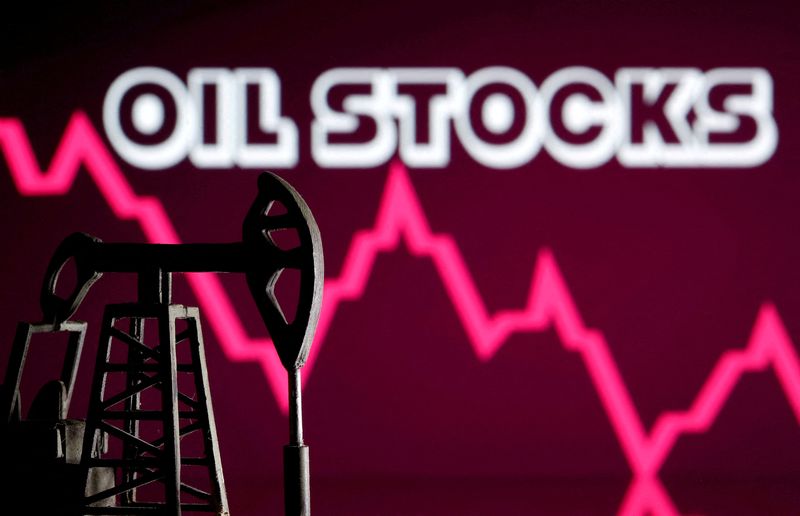By Stephanie Kelly and Arathy Somasekhar
NEW YORK (Reuters) - Oil producers, banks and hedge funds have increased purchases of put options to protect themselves from further losses, market sources said this week, as crude futures hit their lowest level since December 2021 on concern that the rout in the banking industry could trigger a global recession and cut fuel demand.
Oil futures have fallen over 8% since last Friday as the collapse of SVB Financial and peer Signature Bank (NASDAQ:SBNY) prompted concerns of a wider banking crisis.
Credit Suisse on Thursday sought to shore up its liquidity and restore investor confidence by borrowing up to $54 billion from Switzerland's central bank. The Swiss lender is the first major global bank to be thrown an emergency lifeline since the 2008 financial crisis.
Investors in the oil market, including oil producers, have rushed to buy put options, used to either bet on or protect against downside movement. Some hedge funds had short positions on options, two market sources said, in a bet that prices will fall farther.
"There is a fear that if the global economy comes down we could be talking about oil going lower," Price Futures Group analyst Phil Flynn said. "Because (investors) don't know how this banking crisis is going to play out, they're trying to put a floor on risk."
Volume in puts for the U.S. crude futures contract for April delivery gained on Friday over 30% from the previous session to 30,594, CME Group (NASDAQ:CME) data showed.
From Friday to Wednesday, volumes rose even further, climbing over 60% to 50,255 puts. There were about 36,394 call options, or bets on a higher price, bought on Wednesday in comparison.
For U.S. crude futures options open interest, the ratio of puts to calls is the highest since August 2022.
"Given the price action we are looking at, I would say you could see further increases in volatility just because the sentiment is so sour," said Rebecca Babin, senior energy trader at CIBC Private Wealth US.
A U.S. based trader said investors were reluctant to buy and hold due to the high volatility and was therefore focused on short term positions in the market.
"Shorting these levels could turn quickly on you," the trader added.
However, if oil prices fall further, buying put options to protect against the downside would become more expensive as demand goes up, though puts costs vary.
The discount of later-dated oil futures contracts to the front-month contract tightened on Wednesday, indicating that market participants were less confident in short-term demand.
That short-term uncertainty should buoy put buying, Price Futures Group's Flynn said.

The premium of U.S. crude's front-month contract to U.S. crude's price in half a year tightened to as little as 29 cents a barrel, the lowest since Feb. 7, Refinitiv Eikon data showed.
For international benchmark Brent crude futures, the front-month contract's premium to the contract in half a year tightened to $1.31 a barrel, the lowest since Jan. 31.